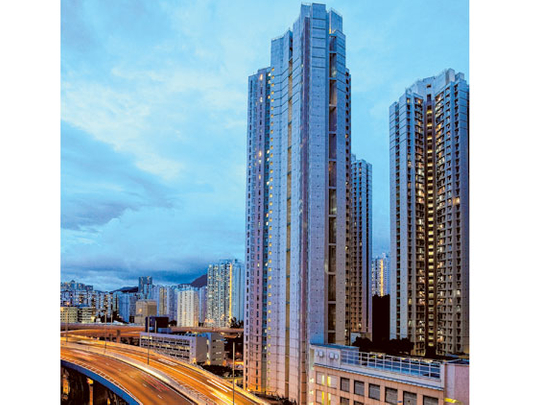
Beijing: Chinese developers’ credit outlook improved as a recovery in home prices eased liquidity pressures and a slowing economy limited the government’s incentive to further tighten policy, Standard & Poor’s said.
The credit rating company may “see some positive rating actions” in the next six months as defaults by so-called distressed developers, such as Greentown China Holdings Ltd., are less likely after asset sales, S&P said in a report on Tuesday.
Prices for newly constructed homes in China rose in fewer cities in August than the previous month, reducing the likelihood that policy makers will take further steps to constrain property prices as growth in the world’s second- biggest economy cools. S&P maintained its negative outlook on the sector, citing uncertain prospects for sales recovery as the government keeps restrictions and as profit margins narrow.
“The credit outlook for Chinese property developers is less negative now than it was six to 12 months earlier,” S&P said in the report. “An improvement in general credit conditions will increase the availability of mortgage loans for first-home buyers and boost liquidity” for construction loans.
China’s home prices rose for a third month in August, SouFun Holdings Ltd., the nation’s biggest real-estate website owner, said on September 3, after the central bank cut interest rates this year to stem an economic slowdown and some local authorities eased curbs as land-sale revenues fell.
Spill over
Some funds “are likely to spill over the real estate sector” as the government increases spending to boost growth, according to S&P.
The measure tracking property stocks on the Shanghai Composite Index lost 0.2 per cent, the only industry gauge to post a decline today. That pared gains this year to 4.8 per cent, compared with the 6 per cent drop in the benchmark index.
The government has raised down-payment and mortgage requirements in its more than two-year effort to curb the property market. It also imposed a property tax for the first time in Shanghai and Chongqing, increased construction of low-cost social housing and enacted home-purchase restrictions in about 40 cities.
Thirty-five of 70 cities covered by the National Bureau of Statistics had price gains in August from the previous month, compared with 49 in July, according to a release in Beijing on Tuesday. The value of home sales transactions rebounded by 0.6 per cent in August after dropping 14.5 per cent in July from June, the bureau said.
“The selling price could still be under pressure because a lot of inventory is coming into the market,” Bei Fu, S&P’s Hong Kong-based property credit analyst, said on a conference call on Wednesday. “The pent-up demand may have been partially absorbed, continuing to put a lid” on prices.
Developers will show signs of squeezed margins “in the next one to two years” because of sector-wide price cuts and promotions since 2011, according to the S&P report, citing the timing difference between contract sales and recognition of sales proceeds.
Greentown, the biggest builder in eastern Zhejiang province, sold 14 projects since November as it seeks to improve cost controls and bring down its debt level, the company said last month.












